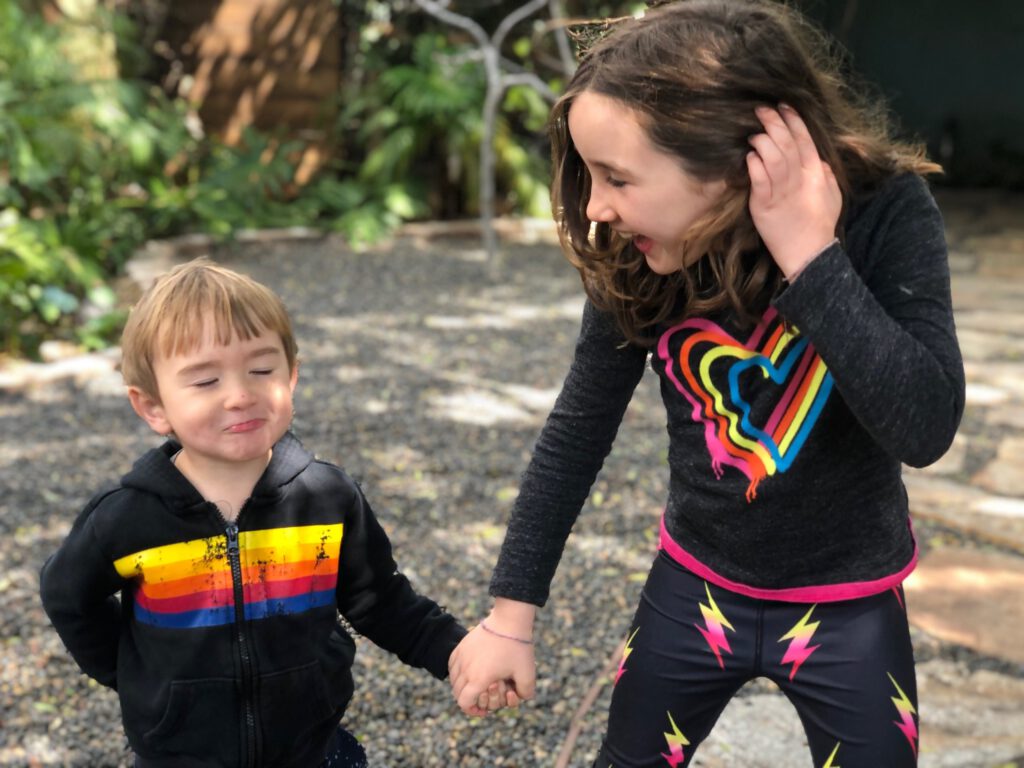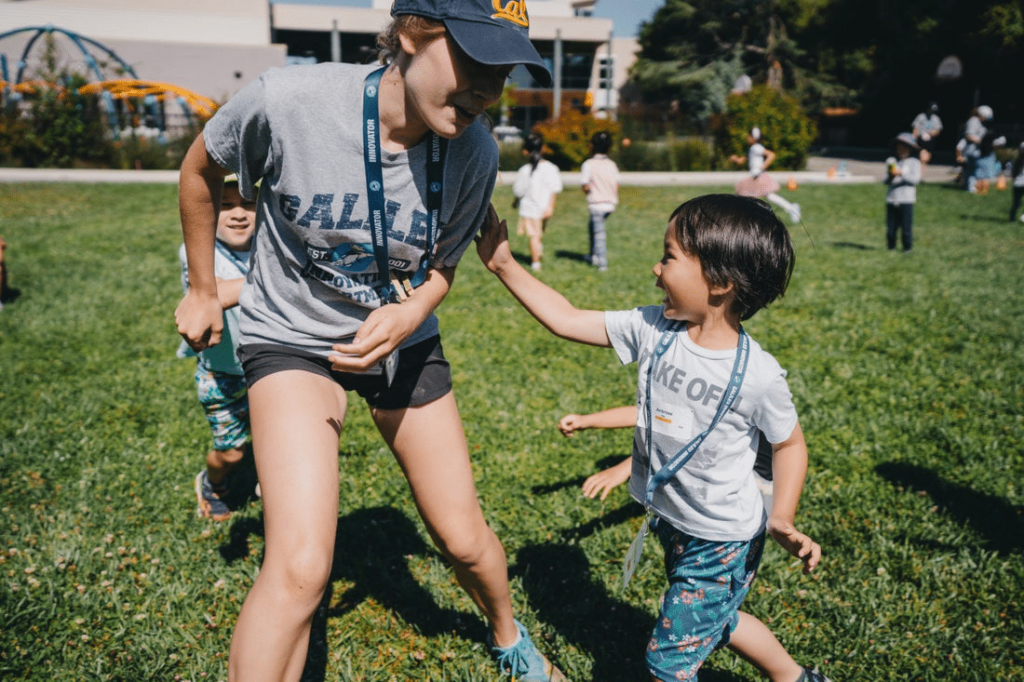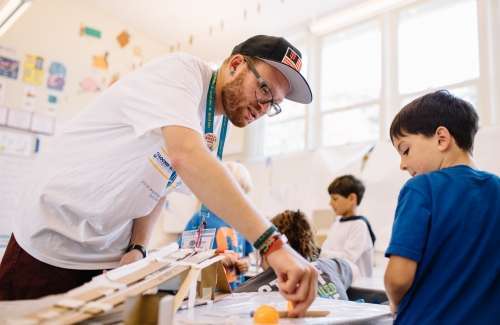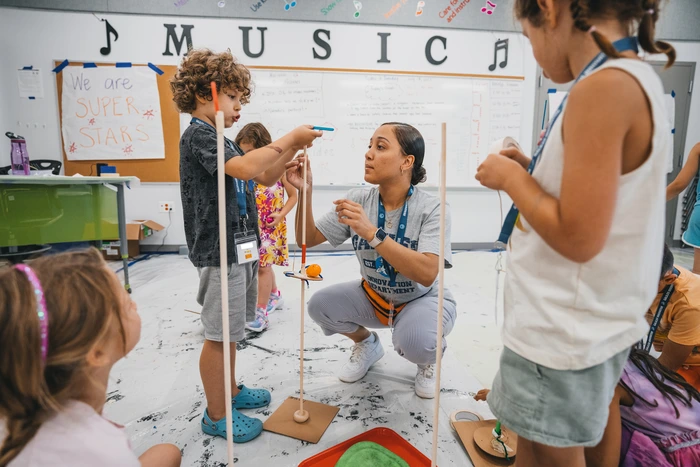For a long time, I’ve carried an idea in my pocket. It’s called the arrogance of belonging, dreamed up by David Whyte. The phrase and the ideas it represents had my number from the get-go. Whyte talks about living with a sustained sense of belonging and inviting others into that. To me, it means that we can know that this is our world to create in, and that it’s a place for us to unleash our full, one-of-a-kind, happening-right-here-right-now selves. It means that everywhere we go, we belong there, and that the people we encounter are all friends we haven’t met yet.
My husband and I are home with a three-year-old and a seven-year-old, balancing all 24 hours of their needs with two full-time jobs. It’s not easy. Space in the house, patience, and moments when we can focus all of our attention on a single thought or effort are scarce. In each of these days, we are also seeing images and hearing heart-rending stories of lifelong couples saying goodbye to each other through windows, medical workers making unthinkable choices, and human beings with no place to shelter in.
In these last few weeks of watching the world struggle to adapt to unexpected crises and grapple with unanticipated change, for me the “arrogance of belonging” has started to unfold itself and gather new meaning.
Today, it means that all of you belong to me. That we belong to each other. Right now, holding that thought breathes me full of hope and ideas for ways I might contribute. Some of the ideas are what my daughter would call wackadoodle, like filming improv videos of myself and my entire family as bears and sending them out to everyone I know. Others are tangible ways that my family and I might share knowledge, resources, or helping hands. These times are a call to leadership. I wonder, if we can all embrace some sense of belonging to each other, how might this situation be lightened? Here are some thoughts on how collaboration can lift up our families, our communities and ourselves.
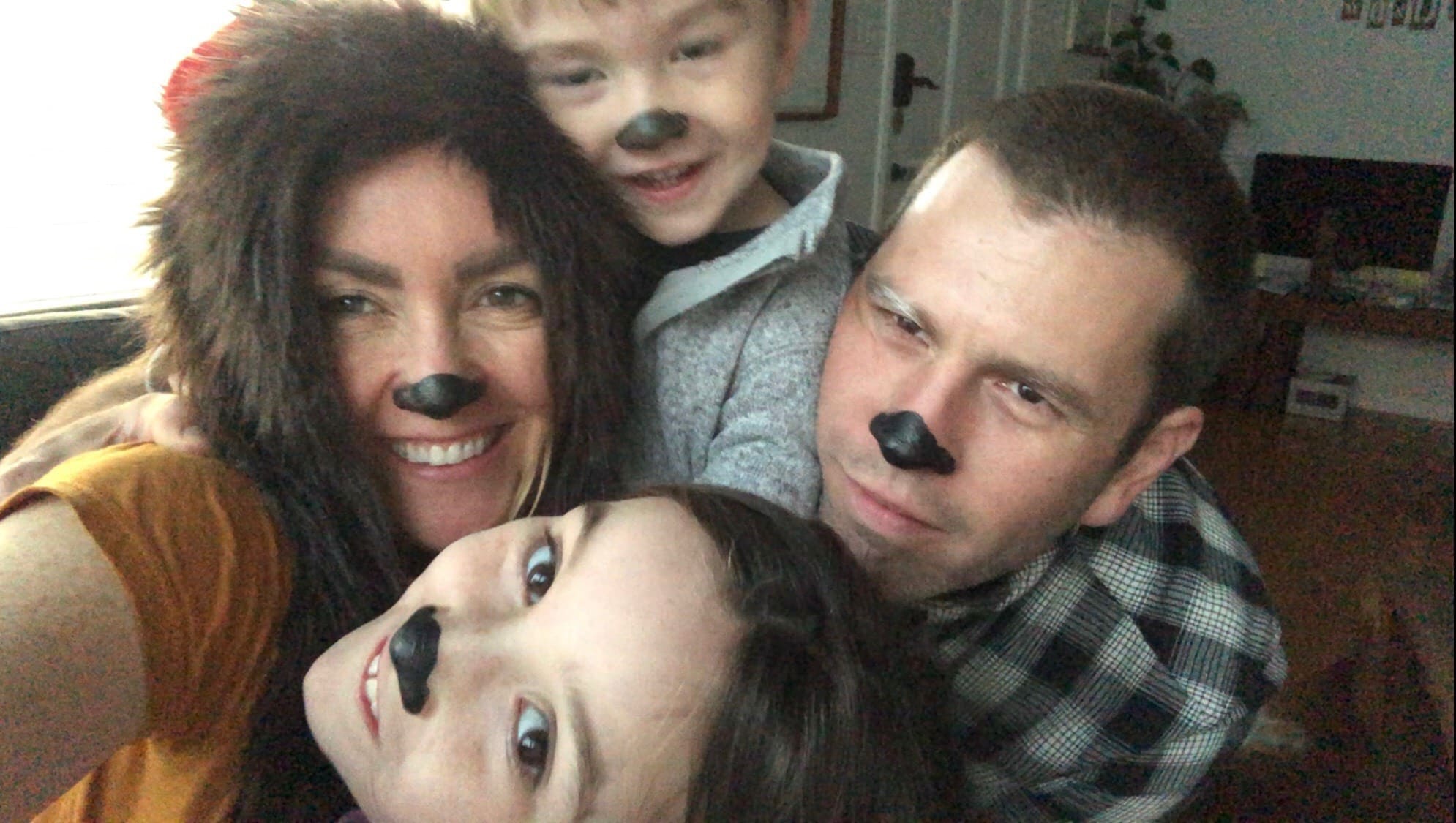
YOU BELONG TO YOU.
Know your limits.
Before you can contribute or lead, you’ve got to have the capacity to do it. This is not a time to overextend ourselves but is very specifically a time to know our own limits, take little sips, and practice mindfulness to stay balanced and healthy.
Do what you can and say peace to the rest.
Our little glowing boxes give us access to ALL the ideas. There is an all you can eat buffet of resources out there right now, but you can’t have all of them or you’ll end up with idea indigestion. You get to pick and choose what’s doable and right for you and scrap the rest.
Sometimes belonging means it’s time to receive.
For collaboration to work, there has to be give and take. For some who are sick, caring for those that are sick, those experiencing the loss of loved ones or work, or homeschooling solo—collaboration might mean it’s time for you to ask for support and help.
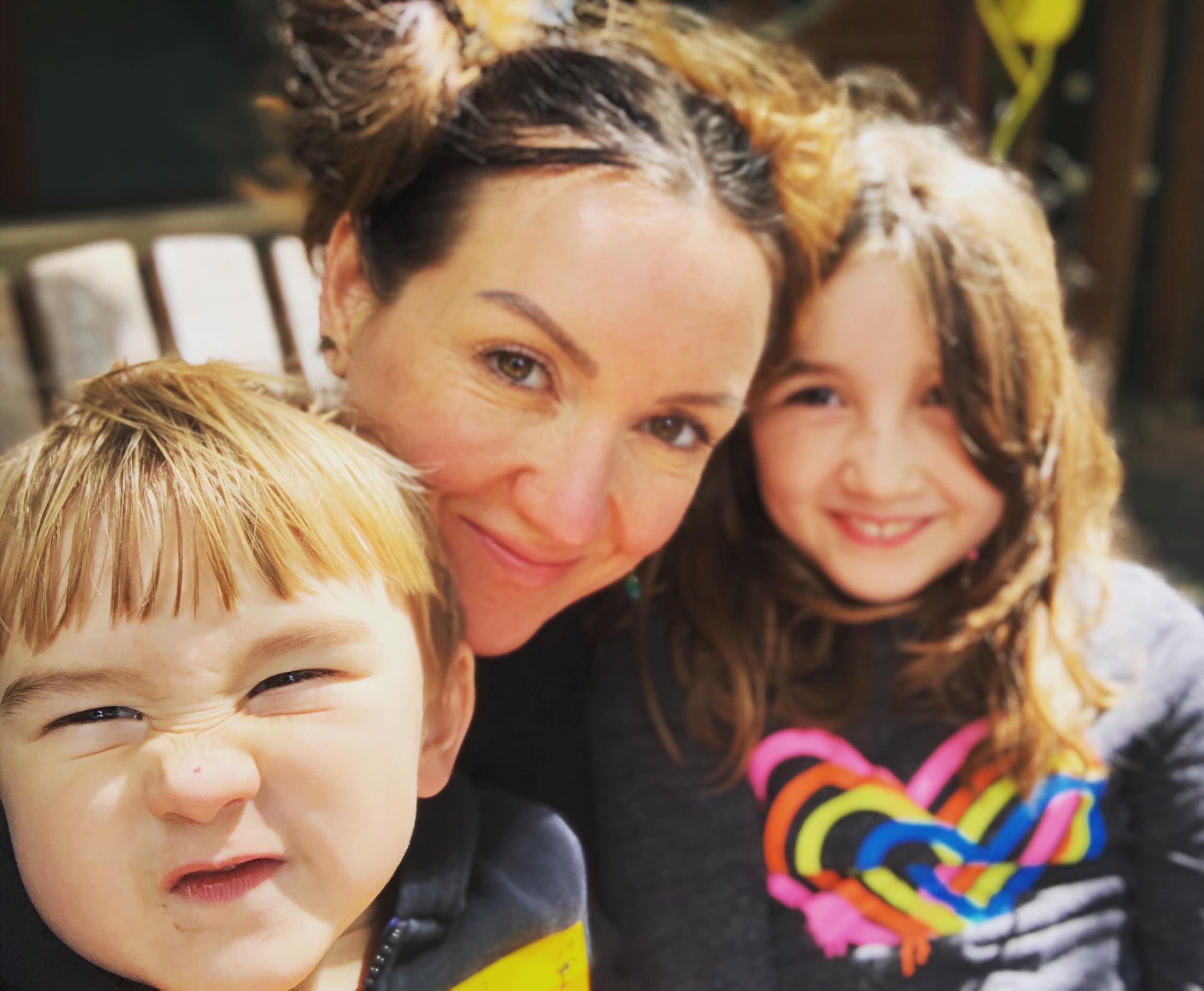
YOU AND YOUR TRIBE BELONG TO EACH OTHER.
My family is in our second week of staying home. I’m not going to lie: it was rough at times. We relaxed our schedule this week and ended up making in-the-moment decisions instead of following our plan. When we spend the whole day prioritizing instead of doing, we end up frazzled, grumpy and with a to-do list that’s only a little shorter than the one we started the day with. A plan is clutch, so long as it’s followable.
Collaborate to plan a weekly rhythm with the goals of joy, ease, and lightness, and then do three things.
- Decide what’s non-negotiable.
- Agree on what you’ll try hard to accomplish.
- Align on the dream scenario.
Then just do your best. For my family, it’s non-negotiable to bookend the day. We have a huddle in the morning to check in, set an intention, review the day and do something goofy. We end the day with a single outing into the neighborhood on skates, in a wagon or walking side by side. In a time when we’re all sharing everything day after day, marking the beginning and end of our focused work and school time is our key to keeping our sanity and our cool.
The rest of the schedule we do our best to stick to. On our dream list are things that happen maybe once or twice in the week, like writing letters to friends. At the end of the day, when our feet hit the sidewalk to head out for that fambam walk, whatever we got to that day is good enough.
Throughout it all, do your best to value this time with your kids. I know my daughter better than I did two weeks ago, and our kids will know us as people by the time this is over. That is one heck of a silver lining.
Each multitasking day might run into the next, and it can be easy to stop listening or take each other for granted. Here are some ideas for ways to let your kids and partner know they are valued, and to encourage collaboration:
- Let your face light up when you see your family in the morning.
- Value their unique perspectives. We can learn a lot from our kids during this time. My three-year-old says that he loves Camp Fambam because he gets to be with Mama and Daddy all day every day. Kids can help shift perspective if we let them.
- Incorporate your kids’ ideas into your plans for the family, your community and the world. Helping their ideas come to fruition now will show them that they can change the world. That is a mindset and skill they will keep for the rest of their lives.
- Teach your kids empathy. Build your relationship with them by asking for their support on the things you’re working on or for the things you need. My family takes turns on our walks in the evenings so that every other night is kid night for scooters and skates, and the alternating nights are times when my husband and I pull the wagon, get some exercise, and get to hold hands. I hope that this helps to teach my kids that we are people too.
- Value this time with your partner or support system, if you have one. For many of us, this is a time to see our partners in a new light and find new ways to operate as a team. Notice the new things you’re appreciating about them. Tell them what you see over a glass of something delicious after the kids go to bed.
- Do something during the day to support them as a human, like handing them a cup of tea in the afternoon, helping them get out for a jog, or swooping in when the kids need a referee and you’re the one who has more left in your cup.
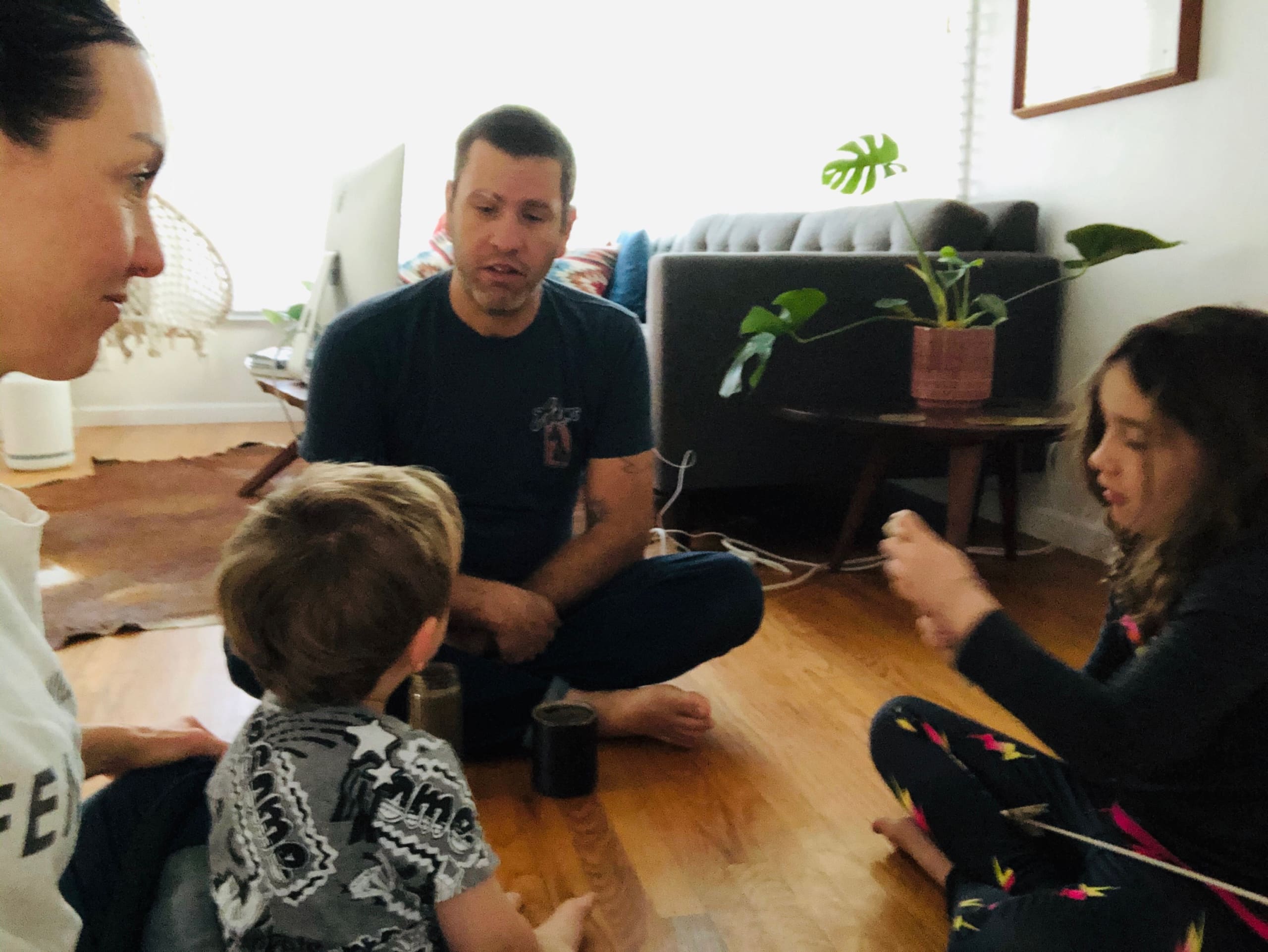
WE ALL BELONG TO EACH OTHER.
Open the news app on your phone or turn on NPR and you’ll hear that the need for leadership is everywhere. Leadership can live in a moment’s choice to support someone in our family or to make a trivial interaction with a stranger meaningful. It can come in formal ways like starting a community group or innovating around how your skills can meet a current need. Here are just a few thoughts on how we can collaborate on a human level.
Know your stuff.
Learn about this disease and take the actions that medical professionals and governing bodies are recommending. Show civic responsibility, which is the very definition of belonging to the community you’re in, and which shows that the other hardworking people in it belong to you. Doing this protects the heroes on the front lines and teaches your kids that their actions matter.
Build off of the ideas of others.
When you see people putting their ideas out there, showing courage and grit by taking a leap to contribute from their heart, be there for it. Support people who are attempting to be their best selves right now. The world needs it. Go to their classes. Respond to their projects. Participate.
Use your own gifts. Rise up.
If you have the capacity, now is the time to contribute from your strengths.
Teach.
Fitness instructors, personal coaches, and scientists are offering online courses for free to support the wellbeing of a homebound world of humans. What could you offer?
Serve.
Here some ideas for community support. I especially love how many of these can be done from home with kids in the mix:
- Points of Light has a grip of ideas for turning your passion into action, like reaching out to seniors who are isolated or giving counseling through text.
- Be a virtual babysitter for someone in your circle by reading books or doing projects with their littles at a planned time, or let them know you can be on call to do this in a pinch when something unexpected comes up.
- Help someone near you by walking a dog, delivering groceries or picking up prescriptions.
- Spread joy by participating in a community bear hunt or creating a window rainbow.
What would happen if we all texted our family and friends a list of the ways we could be a support, or even posted those ideas to our social media accounts? Letting people know you are there and want to help makes it much easier for those who need you most to ask.
Make.
In next week’s post, I’ll focus on how you might create a vision for what you can contribute that’s unique to you, and how we can be intentional about the ways that this experience evolves us into the people we are becoming. In the meantime, here are just a few glimpses at ways folks are using their maker skills right now:
- People around the world are sewing masks and shipping them off to medical professionals in need.
- Podcasts, blogs, and support groups are focusing on supporting humans at home and in need.
- Artists are creating and posting free coloring pages for kids to download.
- DJs are spinning online to give housebound humans a living room dance party.
What do you have up your maker’s sleeve?
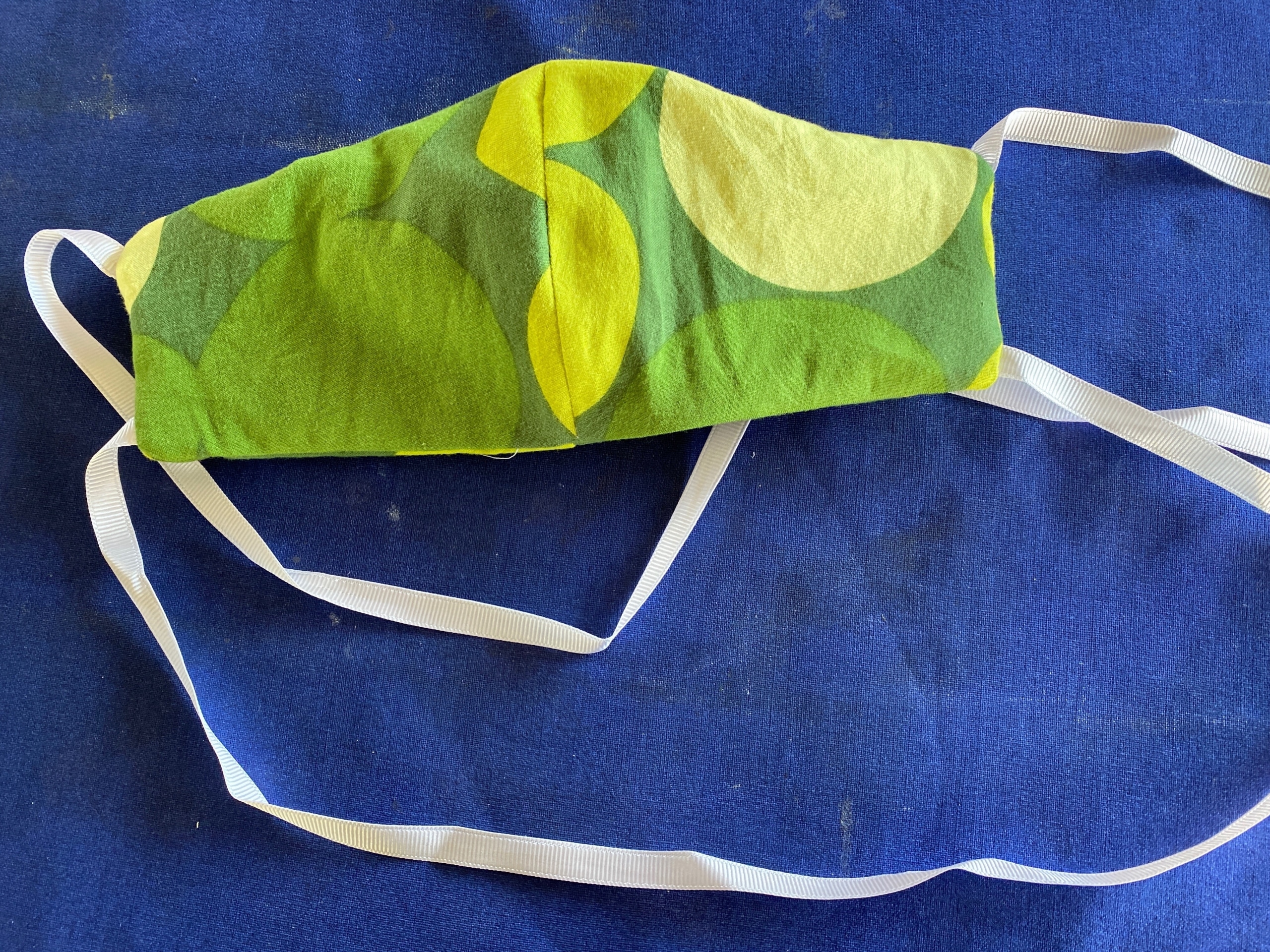
This is a time when need is everywhere we look, and when what makes us different is less important than what brings us together. Despite the loss and destruction, we can channel what is happening into something that has some lasting positive impacts on ourselves, our communities and humanity as a whole.
If you practiced the arrogance of belonging every day, who would you be, and what could you create? What would we be capable of if we each embraced with certainty that we belong to each other?
Let’s find out.
—
Marie McDonald is Galileo’s VP of Communications & Southern California Operations. When she’s not heading up camp operations, Marie loves to write, paint, and adventure with her fam.
